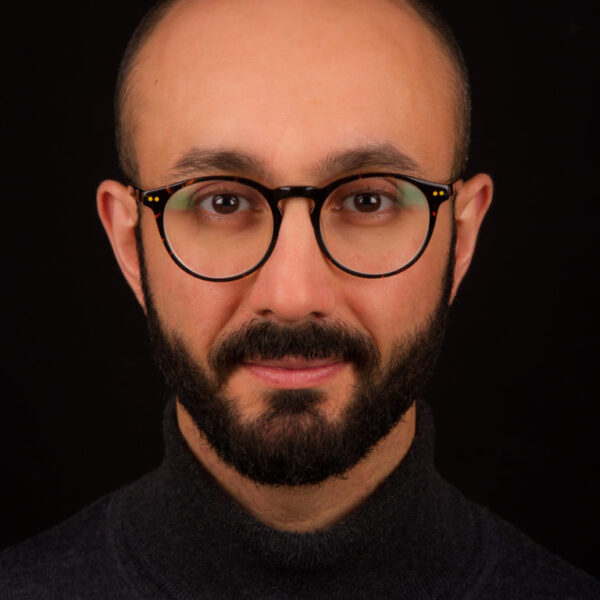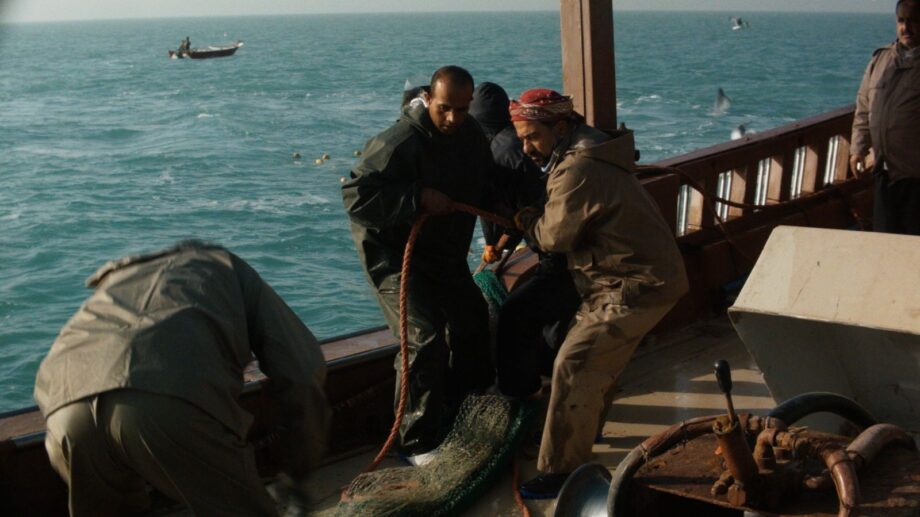Exploring bold new works from filmmakers around the world, the 53rd New Directors/New Films, our annual festival co-presented with The Museum of Modern Art, officially kicks off on April 3. Ahead of the festival, get to know the filmmakers who speak to the present and anticipate the future of cinema.
Shahab Mihandoust discusses inspiration, his experience in Iran, and what he hopes to share with Meezan.
What made you first want to be a director?
During my late 20s, I enrolled in a Film Studies program part-time. Before that, I never thought of either making films nor studying them. My decision was not random but rather in response to the emotions and feelings I was experiencing at the time. When I studied Film, my interest in making them grew. It began to make sense as to how I can make films with the hope of doing so in a meaningful way. In fact, filmmaking became a part of my life in the form of a response to my environment, my past, and my hopes.
Was there a film or director you were inspired by or continue to be inspired by?

It’s hard to come down to one, but I think Trinh T. Minh-ha has been quite inspiring for me in how she introduces new thinking frameworks about film. Surname Viet Given Name Nam has been quite influential for me.
I should also mention David MacDougall. I frequently refer to his ethnographic works (in collaboration with Judith MacDoughall), mainly The Doon School project as well as his two inspiring books Transcultural Cinema and Corporeal Image.
Finally, Diana Allan (who is both an anthropologist and a filmmaker) is quite influential in shaping my understanding of lyrical but impactful cinema.
In your own words, tell us about your film. What should audiences know?
Meezan emerged from my encounters in the port city of Abadan. The city of Abadan was founded in 1908 as an industrial frontier. Located on an island in Southwestern Iran, in its border region with Iraq, before this time Abadan was a village surrounded by palm groves and waterways. When British excavations in the region discovered oil, the landscape transformed. Abadan became the first modern company-town in the Middle East and the home to the world’s largest oil refinery. The birth of Abadan marked the beginning of five decades of British colonial exploitation that endured until the nationalization of the oil industry in 1951. The emergence of petro-capitalism in the region was followed by the making of a new industrial working class in Abadan, and the marginalization of the native Arab inhabitants of the island, whose stories are absent from the historical narratives, most of which consider the city in terms of oil as mere infrastructure.
When the British technocrats left Abadan (and with the rising global demand of fossil fuels), Iran experienced rapid economic growth which ignited the country’s modernization project. This period lasted until the revolution in 1979. After the revolution, when the Iran-Iraq war began, Abadan transformed into a war frontier. The city was sieged and it was left a landscape of destruction.
The complex history of the region has been documented in several pages and images, from the archives of British Petroleum to the accounts of war crafted by the state, and Meezen is an attempt to respond to the gaps in official processes of historiography in which the experience of the workers’ everyday life and the Arab inhabitants are absent. I followed the question of what shapes the atmosphere of everyday life, how it feels to be in a place, and how bodies react and survive under the intensities and affective charges of places.
What does it mean to you to show your film at New Directors/New Films?
It is such a great opportunity (for my work and myself) to present the film in such a vibrant environment. I am very excited to present the film and to meet with the audience, the organizers, and the peer filmmakers.
Both MOMA and FLC are two organizations where I frequently went back to and have seen amazing influential works. I’m humbled that this platform is offered to me to share mine.
What was the biggest lesson you learned during the making of your film?
To constantly rethink my assumptions and questions about my project and to consider the possible violence in posing those questions.
What is the best piece of advice you’ve ever been given?
Have patience.
What else do you enjoy doing outside of filmmaking?
The usual everyday life with my family and community, plus a little bit of yoga.
What’s a film you saw recently that you enjoyed?
Araby by João Dumans & Affonso Uchoa and A Night of Knowing Nothing by Payal Kapadia.
Filmmaker Shahab Mihandoust’s portrait of the fishing industry in Iran’s Khuzestan province—home to Abadan, the first oil company town in the Middle East and a site of mass destruction and migration during the Iran-Iraq War—is at once an immersive process film about labor and a rich, sensorial account of a former combat zone reorganized by decades of industrialization. Across three distinct chapters, an inquisitive camera and intricately detailed sound design (by Ernst Karel) closely attend to both the individual and collective in the environments that dictate daily life and the scale of production operating along the margins of a petro-capitalist landscape: from the fishermen trawling Abadan’s temperamental coast, to an arduous bartering system on the Bahrakan wharf, to a remote shrimp processing-packaging plant operated by women shuttled in from nearby villages. Winner of the 2023 Montreal International Documentary Festival New Vision Award.
Shahab Mihandoust’s Meezan screens on April 13 & April 14. New Directors/New Films takes place April 3-April 14. Explore the lineup and get tickets.



